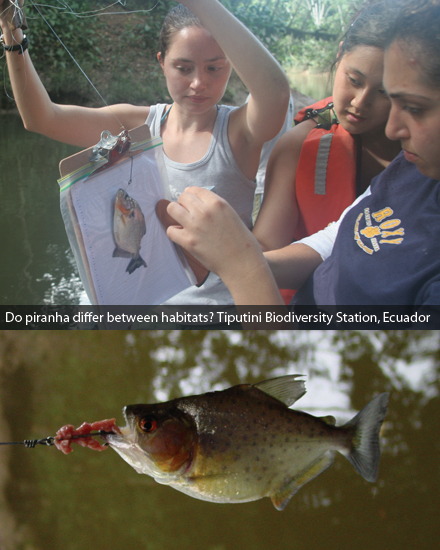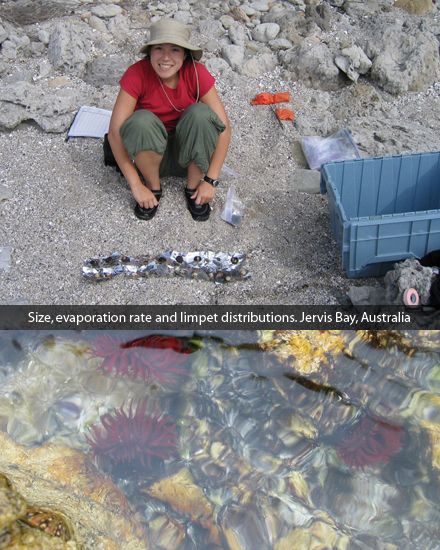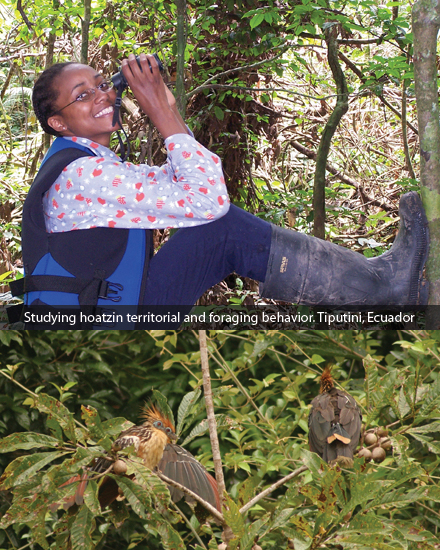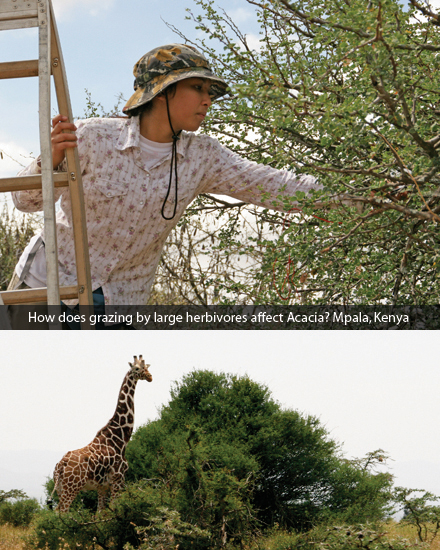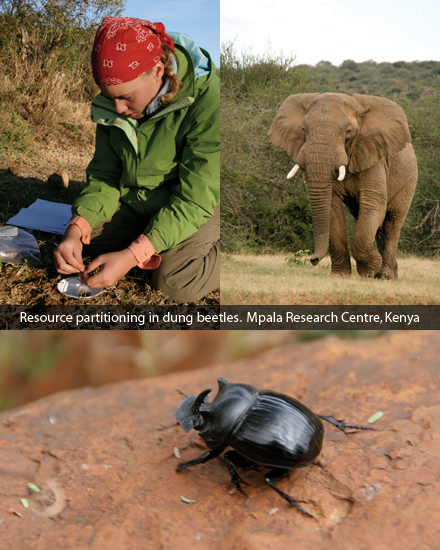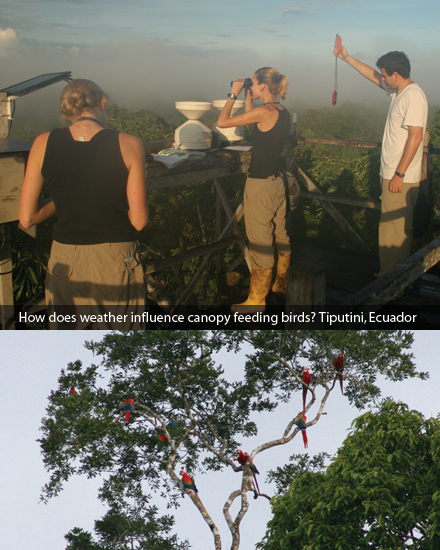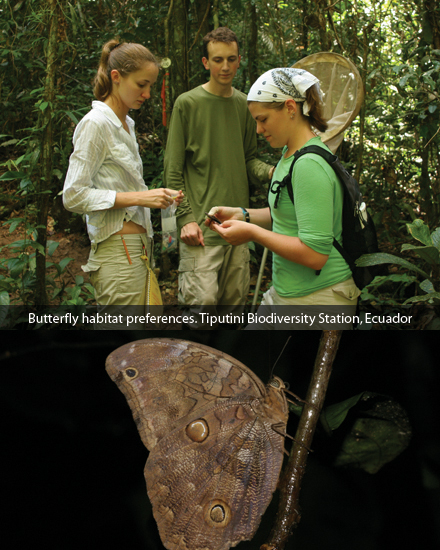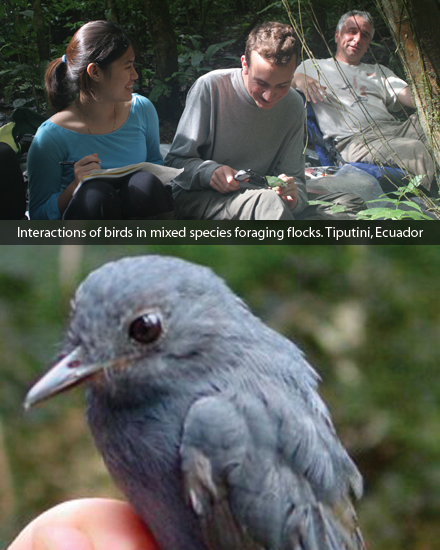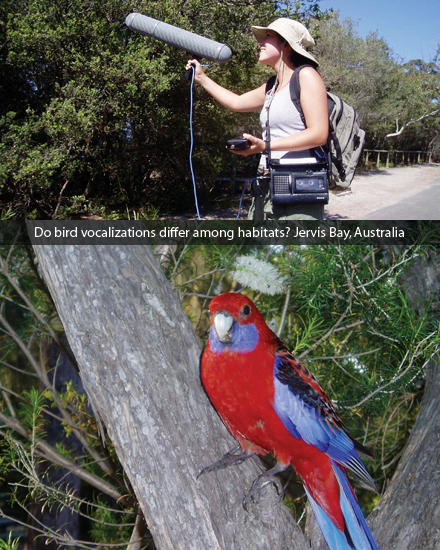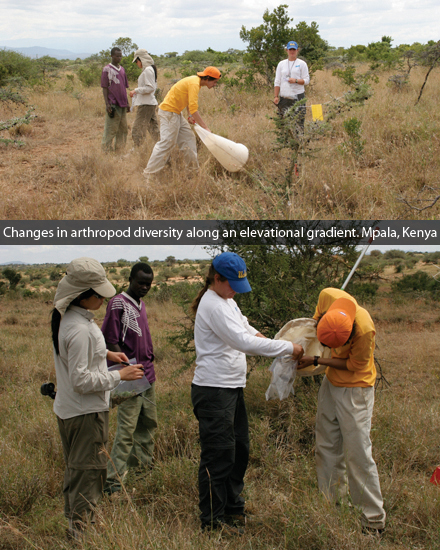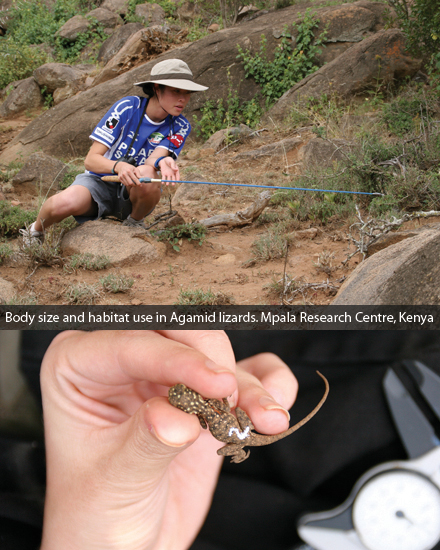WINTER QUARTER 2023 FIELD BIOLOGY QUARTER (FBQ) APPLICATION TROPICAL RAINFOREST
Professors: Elsa Ordway and Greg Grether
Courses:
EE Biol 151B – Field Tropical Ecology (8 units) – Dr. Ordway
EE Biol 132 – Field Behavioral Ecology (8 units) – Dr. Grether
Application link: 23W FBQ link
Application deadline: Monday, February 14, 2022 at 3:00 PM (PST).
Based on a careful review of the written applications, a subset of applicants will be invited for interviews the following week (February 22-25, 2022).
General Overview:
The FBQ is a quarter-long, capstone program designed to give UCLA undergraduate students experience studying tropical ecosystems and wild organisms in their natural environment. Students design and carry out original research in the field, under the guidance of two professors and two graduate student teaching assistants. Back on campus, students analyze their own data, review the relevant literature, write journal article-style reports, and give informal seminar presentations. The FBQ satisfies the field quarter requirement for Ecology, Behavior, and Evolution (EBE) majors, counts as 4 major courses for the Biology major, and fulfills 16 units of the Conservation Biology minor elective requirement. Qualified students in other majors and departments are also welcome to apply.
Field Site for Winter 2023:
We plan to return to the premier tropical rainforest site, Cocha Cashu Biological Station, in Manú National Park, Peru. This field station was established in 1969, deep in the Peruvian Amazon, and has been under the management of the San Diego Zoo since 2011. The site has incredible biological diversity, including 15 species of monkeys, 17 mammalian carnivores, including 6 species of cats, over 500 species of birds, 82 species of amphibians, and over 1000 species of plants. The field station also has rustic but well-designed infrastructure, with a well-marked trail system, tent platforms, showers, dining facilities, library, water purification system, and satellite-based communication. For more information, go to http://cochacashu.sandiegozooglobal.org/ (In case the COVID pandemic, or other circumstances out of our control, prevent us from to returning to Cocha Cashu, we will develop a backup plan for an alternative tropical rainforest site.)
Prerequisites and Recommended Courses:
Prerequisites for the FBQ are Life Sciences 7, EE Biol 100, or an equivalent course in animal ecology and behavior. We also recommend that applicants take (1) one year of math and physics; (2) a course in statistics; and (3) one or more of following EE Biol courses: 103 (Plant Diversity and Evolution), 114 (Ornithology), 115 (Mammalogy), 116 (Conservation Biology), 120 (Evolution), 122 (Ecology), 128 (Plant Physiological Ecology), 129 (Animal Behavior), 136 (Ecological Restoration), 151A (Tropical Ecology), 160 (Intro to Plant Biology), 161 (Plant Ecology), and 162 (Plant Physiology). The most directly relevant courses for this FBQ are EE Biol 116, 122, 129, 151A, and 161.
Estimated Cost:
All qualified students are encouraged to apply. Students who are accepted and choose to enroll will be asked to make a $500 deposit to secure their position. In addition to University registration fees and tuition, there will be a mandatory student contribution to defray costs associated with the trip (travel, food, lodging, etc.). The student contribution for Winter 2023 remains to be determined, but we estimate that it will be in the range of $2500 to $3500. Students who qualify for financial aid may be able to apply for and earn subsidies and scholarships (inquire in the EEB Undergrad Office). For the field-trip portion of the FBQ, students will also need a valid passport, all required immunizations, suitable clothing, and specific items for their own health and safety (e.g., prescription antibiotics, compass, flashlight). A detailed packing list will be provided.



